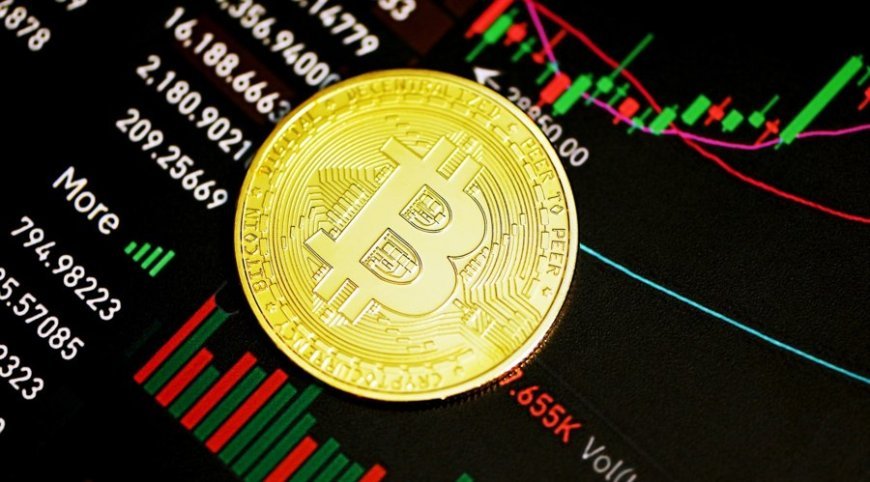Crypto Inflows Surge by Over $300 Million Following Fed's Rate Cut
The digital asset market rallied last week, recording a substantial influx of $321 million in investments. This upward trend followed the Federal Open Market Committee's (FOMC) surprising 50 basis point interest rate cut. Rising Bitcoin InflowsAccording to CoinShares' weekly report, Bitcoin was the standout performer, attracting $284 million in inflows. The combination of the rate cut and recent price movements sparked heightened interest in short-bitcoin investment products, which garnered $5.1 million.In contrast, Ethereum has not fared well. The second-largest digital asset recorded outflows for the fifth consecutive week, totaling $29 million. Persistent withdrawals from the Grayscale Trust and minimal support from newly launched ETFs, reportedly contributed to Ethereum's ongoing decline.Regionally, the United States led the charge with $277 million in inflows, while Switzerland marked its second-largest weekly inflows of the year at $63 million. However, Germany, Sweden, and Canada faced outflows of $9.5 million, $7.8 million, and $2.3 million, respectively, indicating a more cautious approach in those markets.Emerging TrendsWhile Bitcoin continues to dominate the inflow narrative, Solana has shown resilience, attracting consistent small inflows of $3.2 million last week. As the digital asset landscape evolves, the impact of monetary policy shifts and investor behavior could be important in impacting the inflows in the digital asset space.Notably, the crypto asset space experienced a substantial sell-off last month, reaching the lowest price levels since the start of the year. Bitcoin lost 25% of its total value in just four days, declining by $320 billion due to a sudden change in market sentiment. The change in market sentiment was reportedly caused by a deteriorating stock market condition, with which crypto assets are highly correlated.Last week, the US Federal Reserve reduced interest rates by half a percentage point, marking the first reduction since 2020. This step, contrasting common quarter-point adjustments, came amid the regulator’s concerns about inflation rates. The reduction followed more than two years of substantial interest rate hikes aimed at curbing inflation rates, which jumped to 7% in 2022 before dropping to 2.5% this year. The central bank’s announcement echoed optimism of taming inflation towards a 2% target. This article was written by Jared Kirui at www.financemagnates.com.

The digital asset market rallied last week, recording a substantial influx of $321 million in investments. This upward trend followed the Federal Open Market Committee's (FOMC) surprising 50 basis point interest rate cut.
Rising Bitcoin Inflows
According to CoinShares' weekly report, Bitcoin was the standout performer, attracting $284 million in inflows. The combination of the rate cut and recent price movements sparked heightened interest in short-bitcoin investment products, which garnered $5.1 million.
In contrast, Ethereum has not fared well. The second-largest digital asset recorded outflows for the fifth consecutive week, totaling $29 million. Persistent withdrawals from the Grayscale Trust and minimal support from newly launched ETFs, reportedly contributed to Ethereum's ongoing decline.
Regionally, the United States led the charge with $277 million in inflows, while Switzerland marked its second-largest weekly inflows of the year at $63 million. However, Germany, Sweden, and Canada faced outflows of $9.5 million, $7.8 million, and $2.3 million, respectively, indicating a more cautious approach in those markets.
Emerging Trends
While Bitcoin continues to dominate the inflow narrative, Solana has shown resilience, attracting consistent small inflows of $3.2 million last week. As the digital asset landscape evolves, the impact of monetary policy shifts and investor behavior could be important in impacting the inflows in the digital asset space.
Notably, the crypto asset space experienced a substantial sell-off last month, reaching the lowest price levels since the start of the year. Bitcoin lost 25% of its total value in just four days, declining by $320 billion due to a sudden change in market sentiment. The change in market sentiment was reportedly caused by a deteriorating stock market condition, with which crypto assets are highly correlated.
Last week, the US Federal Reserve reduced interest rates by half a percentage point, marking the first reduction since 2020. This step, contrasting common quarter-point adjustments, came amid the regulator’s concerns about inflation rates.
The reduction followed more than two years of substantial interest rate hikes aimed at curbing inflation rates, which jumped to 7% in 2022 before dropping to 2.5% this year. The central bank’s announcement echoed optimism of taming inflation towards a 2% target. This article was written by Jared Kirui at www.financemagnates.com.







